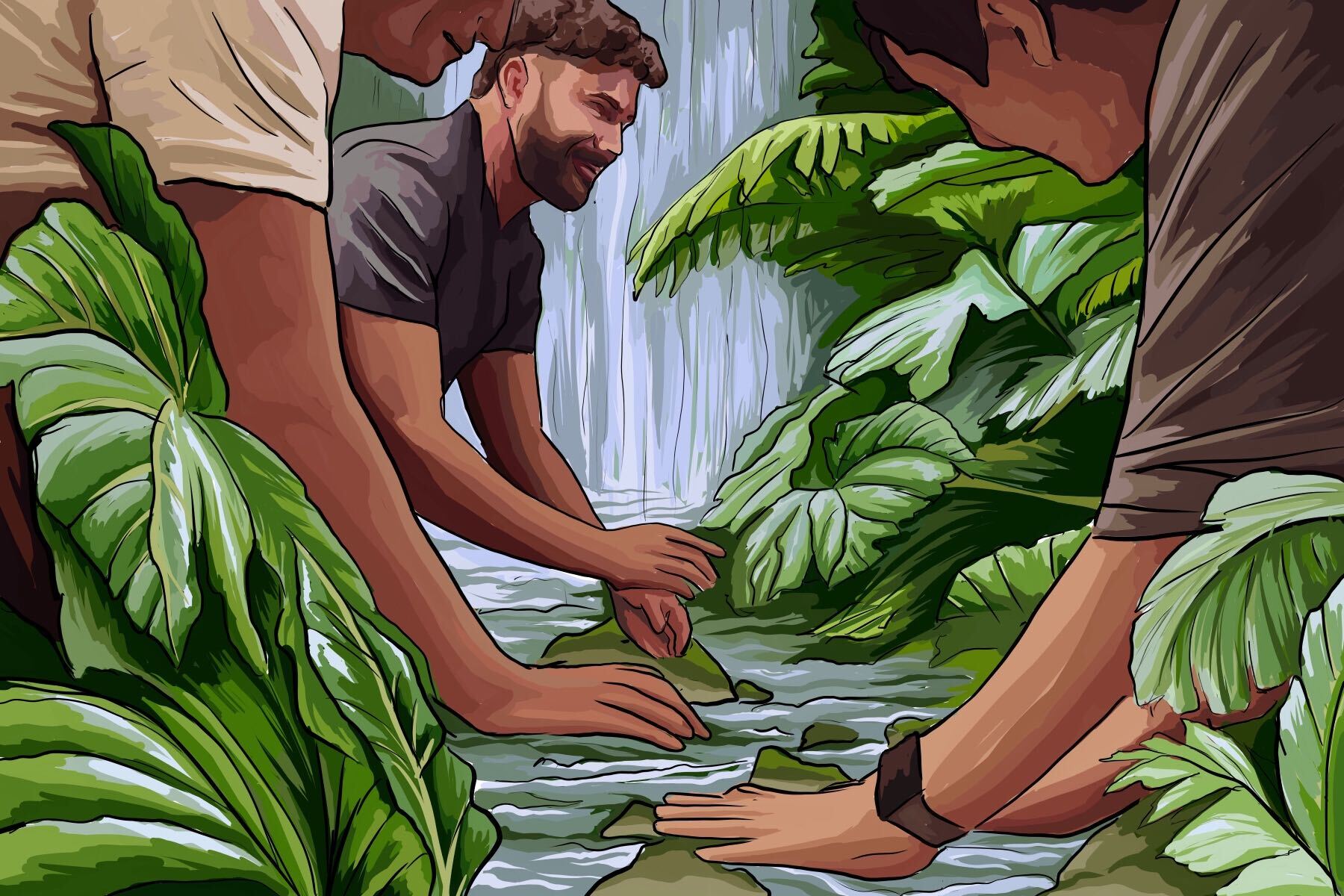In his new documentary series, “Down to Earth,” Zac Efron embarks on a mission to save the planet. The 32-year-old actor, who has played everything from frat boys to teenage heartthrobs, has taken on a new role: cleaning up trash along the Thames River in a sweat-stained T-shirt. But it doesn’t end there. Efron is encouraging others to also protect the planet, in whatever way they can, no matter how small their effort. He wants to make a difference.
In July, Netflix released “Down to Earth With Zac Efron,” an eight-episode series that follows Efron and superfood specialist Darin Olien around the world as they “search for some new solutions to some old problems.” The two strive to find ways that will create a long and healthy life for the planet and the people living on it. To do so, they educate themselves about different lifestyles and methods as they travel to countries and cities outside the United States.
Every 40-minute episode teaches viewers about a particular topic through the lens of a new location: Seeing the thousands of water fountains in Paris that distribute clean and free water encourages viewers to reconsider the importance and accessibility of high-quality water to the public; watching people carry out their day-to-day life in a self-sufficient neighborhood in Costa Rica helps viewers imagine what it could be like to live in a more communal society.
But “Down to Earth” centers around more than just tactics that could potentially save the world. A core piece of the show involves eating fresh and local food, which, to many fast-food eating Americans, would seem beyond exotic. Immersed in various cultures, the docuseries makes viewers feel like they have stakes in places that, up until watching the series, may have only felt like names on a map.
For any TV show to succeed, viewers must feel connected to it in some way or form, but this principle is especially true in “Down to Earth,” which, in every episode, asks people to reconsider the way they live.
In 2020, the world’s problems certainly wouldn’t be considered a novelty, nor would asking people to fix them. “Down to Earth” is no exception to this, but it does so differently by encouraging people to focus on the small ways they can make a difference in their communities, and in turn, the world.
In the sixth episode of the docuseries, Efron and Olien visit Puerto Rico where they learn about the importance of sustainable energy as well as the island’s recovery efforts after being decimated by hurricanes Irma and Maria in 2017. Efron drives around demolished neighborhoods with the mayor of San Juan, witnessing tons of debris scattered where houses once stood. Blue plastic tarps create makeshift roofs for the ones that managed to outlast the storms.
The sight, which overwhelms Efron, clearly couldn’t be fixed in one episode or even during an entire documentary series. But Efron, Olien and the film crew pitch in where they can by helping one San Juan resident clean up the remains of her old house. In the episode, Efron discusses the impact their actions had on the woman, who after seeing their progress gratefully embraces Efron.
“Sometimes we don’t realize how even our smallest efforts can make a tremendous difference,” Efron said.
A similar theme occurs in another episode, when Efron and Olien head to London to gain a better understanding of ways to combat pollution. The two spend an afternoon cleaning up litter alongside the Thames River, one of the world’s cleanest rivers that runs through a major city.
For a “clean river,” an incredible amount of litter persists alongside the Thames, as Efron notes: “You could just stand and not move, and you could not clean up a single square-foot around you.” Efron couldn’t believe how much of the litter consists of small pieces like plastic Q-tips, which exacerbate the problem even more due to the ease with which they can infiltrate sewage treatment plants.
Watching Efron and Olien pick up litter opens viewers’ eyes to the enormity of just one of the problems the planet struggles with on a daily basis.
Right when “Down to Earth” reveals the substantiality of a crisis that seems too large to handle, it reinforces the manageable and bite-sized ways they can be mitigated: to value a sip of water, to use a paper Q-tip, to help one neighbor. At least, Efron thinks so.
“Change has to start somewhere. Even if it’s a little uncomfortable at first, if the change is for the better, it’s worth it,” Efron said. “Maybe it’s time we all change, just a little bit, what we can, where we can, before it’s too late.”
The notion of “saving the world” by having everyone do their part sounds as successful as Wikipedia’s persistent fundraising campaigns that say, “If everyone reading this right now gave three dollars, our fundraiser would be done in an hour.” Unsurprisingly, it never is.
When getting others to wear a mask in a global pandemic proves itself to be a challenge, can we really expect everyone to link arms in defense of Mother Earth?
Just as Efron encourages others to do what they can to make a difference, “Down to Earth” serves as his way of doing the same. The fight for a healthier planet and healthier humans requires the commitment of billions of people as well as a plethora of resources. While Efron may not be able to clean up every river in the world, the blue-eyed heartthrob has amassed 43.1 million followers on Instagram alone. The content he releases into the world and what he chooses to endorse has the potential to spark a fire in those needed to induce serious change. Efron did his part, now it’s time to do ours.

















